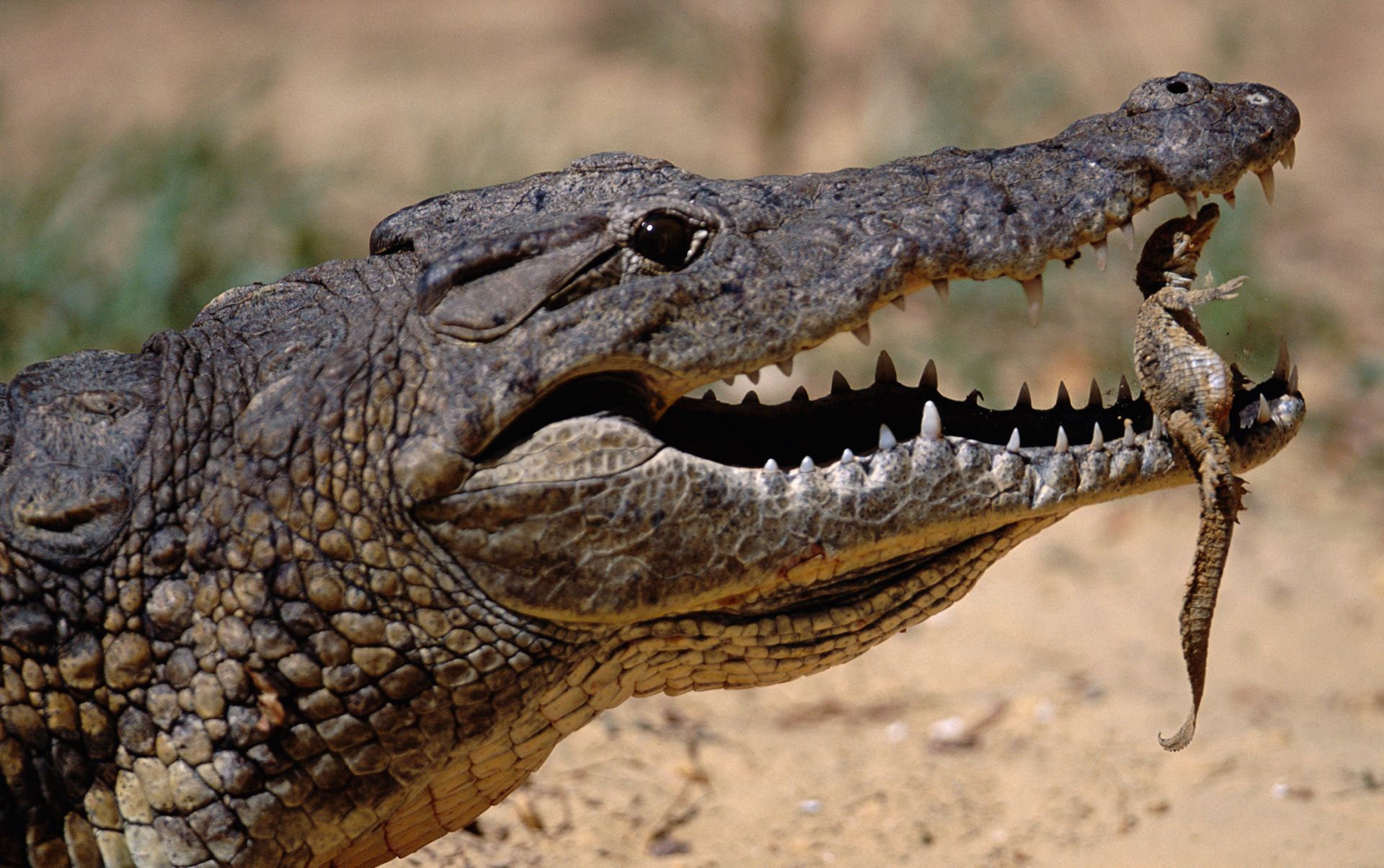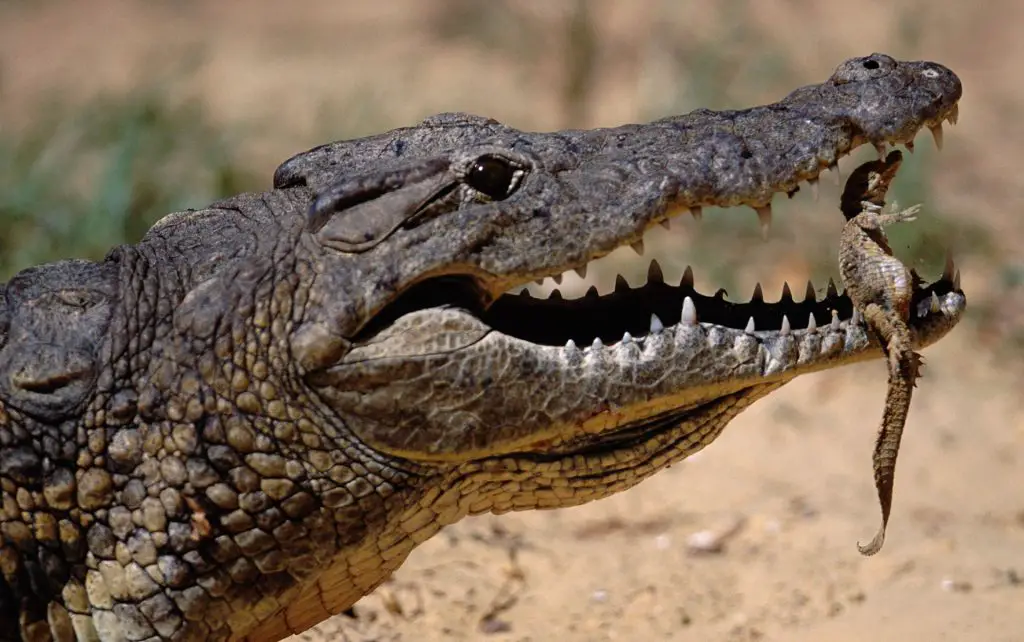Alligators are fascinating creatures known for their impressive size, powerful jaws, and sharp teeth. However, many people wonder if these fearsome reptiles have a softer side. Do alligators care for their young? This question has intrigued scientists and animal lovers alike for years, and the answer may surprise you. In this article, we will explore the fascinating world of alligator parenting and discover the truth behind this mysterious question.
Alligators are known to fiercely protect their nests and young. The mother alligator will lay her eggs and guard them for up to three months until they hatch. Once the babies hatch, the mother will carry them in her mouth to the water and protect them for up to a year. During this time, the mother will defend her young against predators and teach them survival skills.

Do Alligators Care for Their Young?
Alligators, the large reptiles found in the southeastern United States, are known for their fierce nature and powerful jaws. However, when it comes to their young, alligators are surprisingly nurturing and protective. In this article, we will explore the question of whether alligators care for their young and take a closer look at their parenting behavior.
Parental Care Among Alligators
Alligators are known for laying eggs in nests, which they construct out of mud and vegetation. The mother alligator will lay anywhere from 20 to 60 eggs, depending on her size and age. After laying the eggs, the mother will cover them with more vegetation and mud to keep them warm and protected from predators.
Once the eggs hatch, the mother alligator will help her babies out of the nest and into the water. The mother will stay with her young for up to two years, protecting them from predators and teaching them how to hunt and survive in their environment. During this time, the mother will aggressively defend her young from any perceived threat, including other alligators.
To better understand the parenting behavior of alligators, researchers have studied their vocalizations. They have found that mother alligators will make a unique vocalization when calling to their young. This vocalization is different from the mother’s normal vocalization and is thought to help the young alligators identify their mother’s call.
Benefits of Parental Care
The parental care exhibited by alligators is essential for the survival of their young. By staying with their young and protecting them from predators, mother alligators ensure that their offspring have the best chance of survival. In addition, by teaching their young how to hunt and survive in their environment, mother alligators are passing on important skills that will help their offspring thrive in the future.
Research has also shown that parental care can have long-term benefits for offspring. Offspring that receive parental care are more likely to survive to adulthood and have higher reproductive success than those that do not. This is because parental care provides offspring with the resources and support they need to grow, develop, and thrive.
Do Alligators Compete with Their Young?
While mother alligators are fiercely protective of their young, they may also compete with them for resources. For example, mother alligators may steal food from their young or push them away from a food source. This competition is thought to be a way for the mother to ensure her own survival and reproductive success.
However, researchers have found that this competition is generally not harmful to the young alligators. Instead, it may help them develop important skills like hunting and foraging for food on their own. In addition, the competition may help the young alligators learn to recognize and avoid potential predators.
Alligators vs. Crocodiles
While alligators and crocodiles are often lumped together, there are some important differences between them when it comes to parental care. Crocodiles are known for being more aggressive and less nurturing than alligators when it comes to their young. Instead of protecting their young, crocodiles may actively hunt and kill them.
This difference in parental behavior is thought to be related to the environment in which these animals live. Alligators tend to live in freshwater environments, while crocodiles live in saltwater environments. The different environments may have led to different evolutionary adaptations in these two species.
Conclusion
In conclusion, alligators do care for their young and exhibit surprisingly nurturing and protective behavior. By staying with their young and teaching them important survival skills, mother alligators ensure that their offspring have the best chance of survival. While there may be some competition between mother alligators and their young, this is generally not harmful to the young alligators.
In comparison to crocodiles, alligators are much more nurturing and protective of their young. This difference in behavior may be related to the different environments in which these animals live. Overall, the parenting behavior of alligators is both fascinating and essential for the survival of their species.
Frequently Asked Questions
Here are some common questions people have about the care provided by alligators for their offspring.
What is the role of the mother alligator in caring for her young?
The mother alligator plays an essential role in caring for her young, especially during the first year of their life. She selects a suitable nest site, builds a nest, lays her eggs, and guards the nest until the eggs hatch. Once the babies emerge from the eggs, the mother alligator helps them out of the nest and into the water. She also protects them from predators and teaches them how to hunt for food.
During the first year of life, the mother alligator stays close to her offspring, providing them with warmth and protection. She also defends them from other alligators that may pose a threat to their survival.
Do male alligators help care for their young?
Male alligators do not provide any care for their young. Once the female lays her eggs, the male plays no further role in the reproduction process. He may occasionally share a basking site with the female, but he does not assist with nest building, incubation, or care of the young.
Male alligators are solitary creatures that spend most of their time away from the female and her offspring. They may even see the young alligators as potential prey, especially if they are hungry or competing for resources.
What happens if the mother alligator dies or abandons her young?
If the mother alligator dies or abandons her young, the offspring’s survival chances decrease significantly. The young alligators are vulnerable to predation and exposure to harsh environmental conditions. Without the mother’s care, they may struggle to find food and may not learn essential skills needed for survival.
In some cases, other female alligators may adopt the abandoned young and care for them. However, this is relatively rare, and most young alligators that lose their mother do not survive to adulthood.
At what age do young alligators become independent?
Young alligators become independent at around one year of age. At this age, they are large enough to hunt for themselves and no longer need the mother’s care. However, they may stay close to their mother for a few more years, especially if food is abundant in the area.
Eventually, the young alligators will disperse and find their territories, where they will live as solitary creatures until the next breeding season.
How many offspring does a female alligator have?
A female alligator can lay between 20 and 50 eggs in a single clutch. However, not all eggs hatch, and not all hatchlings survive to adulthood. The survival rate of young alligators is relatively low, and many die before reaching maturity.
Despite the low survival rate, the female alligator continues to reproduce every year, ensuring the survival of the species. Female alligators can live for up to 50 years in the wild, providing them with ample time to produce offspring.
It’s a Rough Life for Baby Crocs | Boss Croc
In conclusion, while many people may assume that alligators are cold and indifferent creatures, the evidence suggests otherwise. In fact, these fascinating reptiles have been observed displaying a surprising level of care and protection for their young. From building nests and guarding eggs to actively protecting their offspring from potential predators, alligators seem to have a strong instinct to nurture and defend their young.
Of course, there is still much we don’t know about alligator behavior, and scientists are continuing to study these creatures in order to better understand their complexities and motivations. But one thing is clear: when it comes to caring for their young, alligators are far from the heartless predators that many people imagine them to be. Whether you’re a nature lover or simply curious about the natural world, there’s no denying that alligators are truly remarkable creatures that deserve our respect and admiration.

